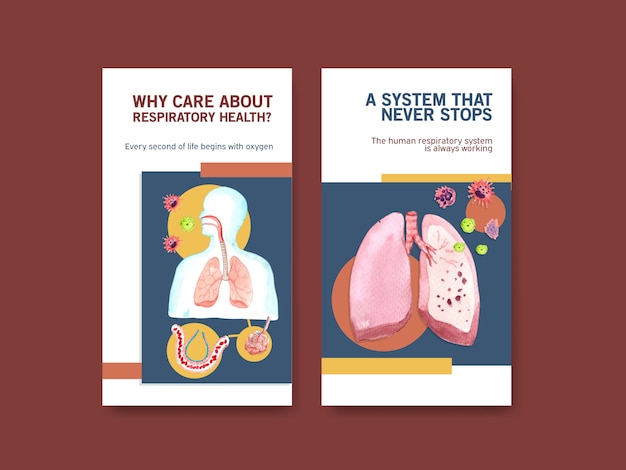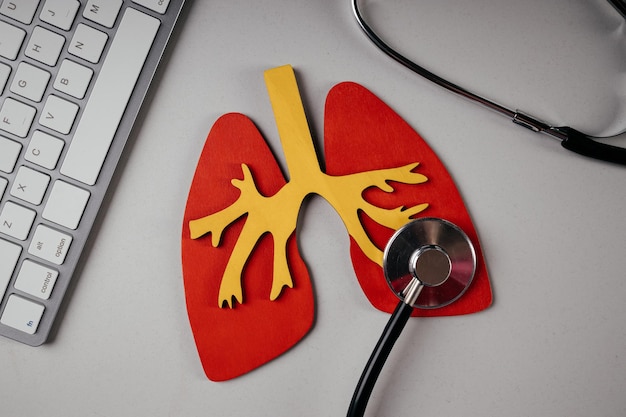Taking care of your lung health is essential for a vibrant and active lifestyle. Just like any other part of your body, your lungs require proper attention and care to function optimally. In this article, we will explore a variety of practical steps you can take to maintain better lung health, from adopting healthy habits to avoiding harmful substances. Let’s dive in and learn how you can breathe easy and enhance your overall well-being.
Understanding the Importance of Lung Health
Your lungs are incredible organs that play a vital role in delivering oxygen to your body’s cells and expelling carbon dioxide, a waste product of metabolism. Healthy lungs are essential for overall well-being and energy levels.
The Role of Proper Nutrition

Fueling Your Lungs with Antioxidants
Antioxidant-rich foods, such as berries, citrus fruits, and leafy greens, can help protect your lungs from oxidative stress and damage caused by harmful particles in the air.
Incorporating Omega-3 Fatty Acids
Omega-3 fatty acids, found in fish like salmon and flaxseeds, have anti-inflammatory properties that can support lung health by reducing inflammation and promoting better airflow.
Staying Active: Exercise and Lung Health
Cardiovascular Workouts for Lung Efficiency
Engaging in regular cardiovascular exercises, like brisk walking, jogging, or swimming, can enhance lung health efficiency and capacity, leading to improved oxygen exchange.
Strengthening Lung Capacity with Breathing Exercises
Practicing deep breathing exercises and diaphragmatic breathing techniques can strengthen your respiratory muscles and increase lung capacity over time.
Maintaining Clean Indoor Air

Importance of Indoor Air Quality
Indoor air pollution can negatively impact lung health. Ensure proper ventilation in your living spaces and avoid using harmful chemicals indoors.
Using Air Purifiers and Humidifiers
Air purifiers can help remove allergens and pollutants from the air, while humidifiers maintain optimal moisture levels, preventing respiratory irritation.
Avoiding Harmful Substances
Quit Smoking for Healthy Lungs
Smoking is a leading cause of lung diseases. Quitting smoking can significantly improve lung function and reduce the risk of lung-related illnesses.
Minimizing Exposure to Environmental Pollutants
Limit your exposure to outdoor pollutants by checking air quality levels before heading outside and wearing a mask in highly polluted areas.
Hydration and its Impact on Lung Function

Benefits of Staying Hydrated
Drinking an adequate amount of water throughout the day keeps your airways moist and supports the thin mucus layer that protects your lung health.
Hydration's Connection to Mucus Production
Proper hydration helps prevent mucus from becoming too thick and difficult to expel, reducing the risk of lung infections.
Practicing Good Posture for Lung Health
Aligning Your Body for Optimal Breathing
Maintaining good posture allows your lungs to expand fully, enabling efficient air exchange and preventing strain on your respiratory muscles.
Posture's Influence on Lung Capacity
Poor posture can restrict lung expansion and reduce lung capacity. Being mindful of your posture supports better breathing.
Mindful Breathing Techniques for Lung Wellness
The Power of Deep Breathing
Engaging in deep, intentional breaths can calm your mind, reduce stress, and improve lung function by enhancing oxygen exchange.
Incorporating Meditation for Respiratory Health
Mindfulness meditation and focused breathing practices can promote relaxation and strengthen your respiratory muscles.
Adequate Sleep and Lung Regeneration

Understanding Sleep Apnea and Lung Function
Sleep apnea can negatively affect lung health by disrupting proper breathing patterns. Treating sleep apnea improves overall respiratory function.
Establishing a Sleep Routine for Lung Health
Prioritize quality sleep by maintaining a consistent sleep schedule and creating a comfortable sleep environment.
Regular Health Check-ups and Lung Screening
Importance of Routine Lung Function Tests
Periodic lung function tests can help detect early signs of lung diseases and monitor your lung health over time.
Identifying Lung Issues Early
Early detection and intervention are crucial for managing lung conditions effectively. Regular check-ups contribute to timely diagnosis.
The Impact of Allergies on Lung Health
Managing Allergies for Unrestricted Breathing
Addressing allergies and avoiding allergens can prevent respiratory symptoms and ensure clear airways for optimal breathing.
Creating an Allergy-Free Home Environment
Keeping your home clean, minimizing dust and pet dander, and using air purifiers can create a safe haven for your respiratory health.
Conclusion
Prioritizing your lung health is a significant step towards a healthier, more active life. By adopting these practical strategies, from maintaining proper nutrition to practicing breathing exercises and staying vigilant about indoor air quality, you can ensure that your lungs function optimally. Remember, every breath you take impacts your well-being, so make each one count.
Frequently Asked Questions (FAQs)
Absolutely! Healthy lungs support efficient oxygen delivery to your body, contributing to higher energy levels.
Yes, foods rich in antioxidants, omega-3 fatty acids, and vitamin C are beneficial for lung health.
Yes, poor posture can restrict lung expansion and hinder proper breathing.
It’s never too late. Quitting smoking at any age can lead to noticeable improvements in lung function.






